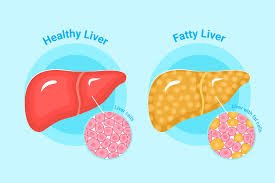Fish vs. Chicken – Which Is Better for Your Health?
When it comes to choosing a source of lean protein, most people find themselves torn between two popular options — fish and chicken.
Both are packed with nutrients, rich in protein, and form the foundation of many healthy diets. But if you’ve ever wondered which one is healthier, the answer depends on your goals, preferences, and overall health needs.
As a clinical and wellness nutritionist, Dietician Geetanjali Mengi helps people make smart food choices that align with their body’s needs.
Let’s explore how fish and chicken compare in terms of nutrition, health benefits, and what might be best for you.
1. Nutritional Profile: Protein Power and Beyond
Both fish and chicken are excellent sources of high-quality protein, which supports muscle repair, hormone production, and metabolism. However, their nutrient composition differs in other ways:
Chicken:
* Rich in lean protein (especially breast meat).
* Contains B vitamins such as niacin (B3) and pyridoxine (B6), essential for energy metabolism.
* Provides minerals like phosphorus and selenium.
* Generally lower in fat compared to red meat, making it a popular choice for weight management.
Fish:
* Offers high-quality protein like chicken but with an added bonus — omega-3 fatty acids.
* Fatty fish such as salmon, sardines, and mackerel are excellent for heart, brain, and joint health.
* Contains vitamin D, iodine, and selenium — nutrients that are often lacking in regular diets.
* Easier to digest and lighter on the stomach compared to poultry or red meat.
Verdict:
For pure protein, chicken is slightly higher in quantity, but fish wins for its heart-friendly fats and micronutrient diversity.
2. Heart Health: Fish Takes the Lead
Fish, particularly fatty fish, is well known for its cardiovascular benefits. The omega-3 fatty acids (EPA and DHA) help lower triglyceride levels,
reduce inflammation, and improve arterial function. Studies consistently show that people who eat fish regularly have a lower risk of heart attacks and strokes.
Chicken, on the other hand, is also heart-friendly when prepared healthily — grilled, baked, or boiled without excess oil or butter.
However, since it lacks omega-3s, it doesn’t provide the same cardiovascular advantages as fish.
Verdict:
If your goal is to improve heart health or reduce cholesterol, fish is the better option.
3. Weight Management and Satiety
Both chicken and fish can be part of a weight-loss or maintenance plan, as they are lean proteins that help build muscle and boost metabolism.
Chicken breast (skinless) is lower in calories and fat, making it a staple for fitness enthusiasts.
Fish, especially varieties like cod, tilapia, and rohu, are also light and easy to digest, helping control calorie intake.
Fatty fish like salmon or mackerel, though higher in calories, promote satiety and balance hormone function, which helps reduce overeating.
Verdict:
For calorie control — chicken breast.
For sustainable, nutrient-rich weight management — fish (especially omega-3-rich types).
4. Brain Function and Mental Wellbeing
Fish offers a significant edge here. Omega-3s play a crucial role in brain health, improving memory, mood, and cognitive function. DHA, one of the key fatty acids, forms a vital part of brain cell membranes.
Regular fish intake has been linked to lower risks of depression, anxiety, and age-related cognitive decline.
Chicken provides some B vitamins that support nervous system health, but it lacks the omega-3 benefits.
Verdict:
Fish is the clear winner for mental wellbeing and brain performance.
5. Digestibility and Inflammation
Fish is generally lighter and more easily digestible, making it ideal for those with weak digestion, chronic illnesses, or older adults.
The anti-inflammatory properties of omega-3 fats also support gut health and reduce inflammation throughout the body.
Chicken, if prepared healthily and without heavy oils, is also well tolerated. However, certain processed or fried chicken products can contribute to inflammation.
Verdict:
Fish is gentler on the gut and more anti-inflammatory in nature.
6. Sustainability and Safety Considerations
While both can be part of a healthy diet, it’s essential to choose wisely.
* Opt for freshwater or responsibly sourced fish to avoid high mercury levels.
* Choose lean, skinless chicken and avoid processed versions like sausages or nuggets.
* Alternate between both for nutritional balance and variety.
Tip: Cooking methods matter! Prefer grilling, baking, or steaming over frying for both fish and chicken.
7. So, Which Is Better — Fish or Chicken?
There’s no one-size-fits-all answer. Both are healthy in their own ways.
* Choose fish if you want heart protection, better brain health, and anti-inflammatory benefits.
* Choose chicken if you prefer a lean, versatile protein option that’s affordable and easy to cook.
Ideally, include both in rotation — two servings of fish per week and chicken as part of balanced meals — to enjoy a variety of nutrients without overdependence on one source.
Final Word by Dietician Geetanjali Mengi
Your body thrives on balance. Instead of asking “which is better,” focus on how you prepare and consume your meals. Fresh, minimally processed,
home-cooked fish and chicken can both support good health when paired with vegetables, whole grains, and healthy fats.
For personalized meal planning and health-focused diet programs — from weight management and diabetes care to heart and renal health — connect with Dietician Geetanjali Mengi, one of Mumbai’s leading clinical nutritionists.
A balanced diet, mindful eating, and smart food choices are the real secrets to long-term wellness.
Geetanjali- The Voice of Healthcare- a Reg, Clinical Dietician Nutritionist, Wellness-Speaker, Author, Anchor, Wellness Expert, Pod-caster, Blogger, You tuber is based in Mumbai



